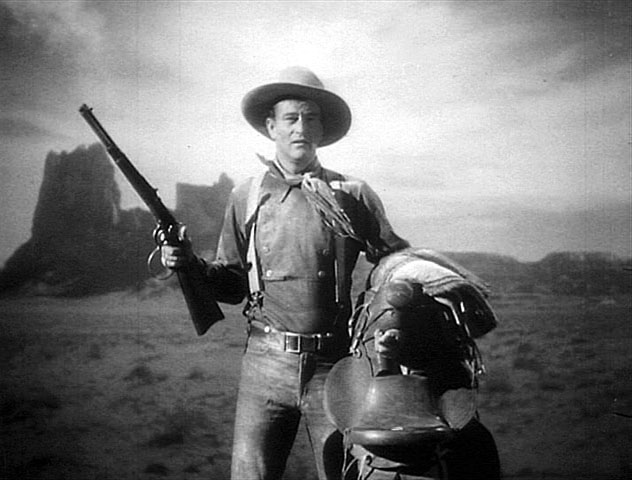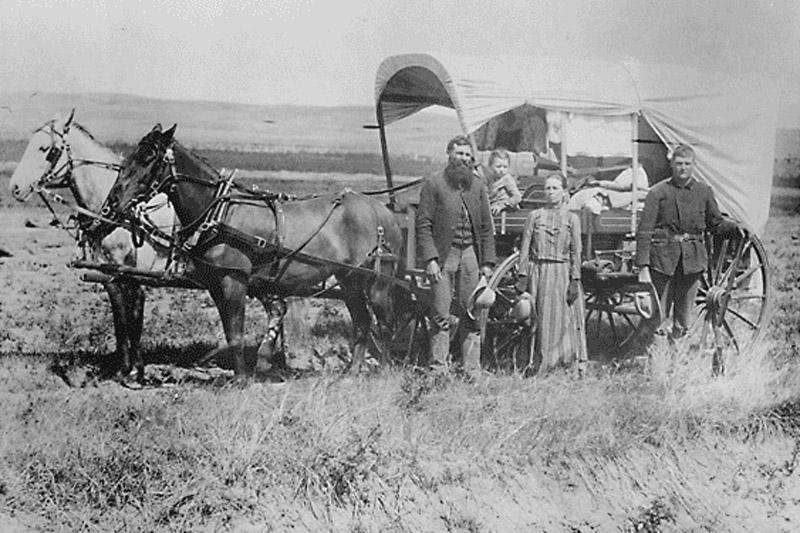Many people picture John Wayne or some other cowboy star as the archetype of the rugged, self assured, always ready to stand up for what he thought was right American. This myth of the pioneer individualist wasn’t created by Hollywood; in fact it at least dates back to the days of James Fennimore Cooper and his character Hawkeye in ‘The Last of the Mohicans’. Still Hollywood built on that image, making the ‘Wild West’ the natural environment where America’s national character both evolved and flourished.


Historically frontier regions have been known to attract people who were not only seeking a better life but a life less constrained by the rules and mores of society. In order to survive in such harsh, lonely conditions those settlers had to be not so much strong in a physical sense but resilient and adaptable. The question today would be, are those traits still present in the descendants of those pioneers one hundred years after the close of the frontier.

So is there actually such a type of person, psychologically speaking that is, and how would we go about measuring the traits of the sort of person who exemplifies the pioneer spirit? And where would you find such a person today?
Psychologists at the University of Cambridge have attempted to do just that. Using the results of an online personality test completed by over 3.3 million Americans they employed the respondents zip codes to separate out those who lived in rugged, mountainous regions, such as the Rocky Mountains from their lower altitude, more comfortably urban neighbors. By comparing the two populations the researchers hoped to discover if the people living in harsh, unpopulated surroundings actually developed a distinct personality.

To carry out their analysis the researchers assessed the results of the psychological testing using a standard psychological model known as the ‘Big Five’ for five fundamental personality traits. Included in the big five model are such characteristics as ‘Agreeableness’, ‘Extraversion’, ‘Conscientiousness’, ‘Neuroticism’ and ‘Openness to Experience’.

When the inhabitants of the Rocky Mountains were evaluated according to those categories they demonstrated low levels of ‘Agreeableness’, ‘Extraversion’ and ‘Conscientiousness’. These results indicate a personality that is marked by a lack of trust, more territorial, more self reliant and rebellious. On average the Rocky Mountain residents also showed low values of ‘Neuroticism’ showing a more secure, less neurotic mental state, which would give them the mental stability to deal with problems on their own, without any help from others. Finally they showed high values for ‘Openness to Experience’ showing that Mountain folk also have to be ready to accept new situations and do whatever it takes to survive.

The psychologists separately analyzed the results from respondents who lived in the Appalachian Mountain regions, which were settled just about a hundred years before the Rockies, to see if there were any significant differences between the two groups of mountain dwellers. The scientists found that while the psychology of the residents of Appalachia were similar to those in the Rockies the eastern mountain inhabitants displayed more ‘Agreeableness’ and less ‘Openness to Experience’. Could this mean that the frontier attitude lessens with time. That as a region becomes more settled, even if it remains less densely populated, the inhabitants of mountainous areas will become psychologically more similar to their low land, urbanite neighbors? That’s a question that only more data and further analysis can answer.

What the results of the University of Cambridge do show is that the environment in which we choose to live says a great deal about our personality. And in return of course that environment will have its evolutionary effect on us. Just one more way of saying that we are a part of our environment.
